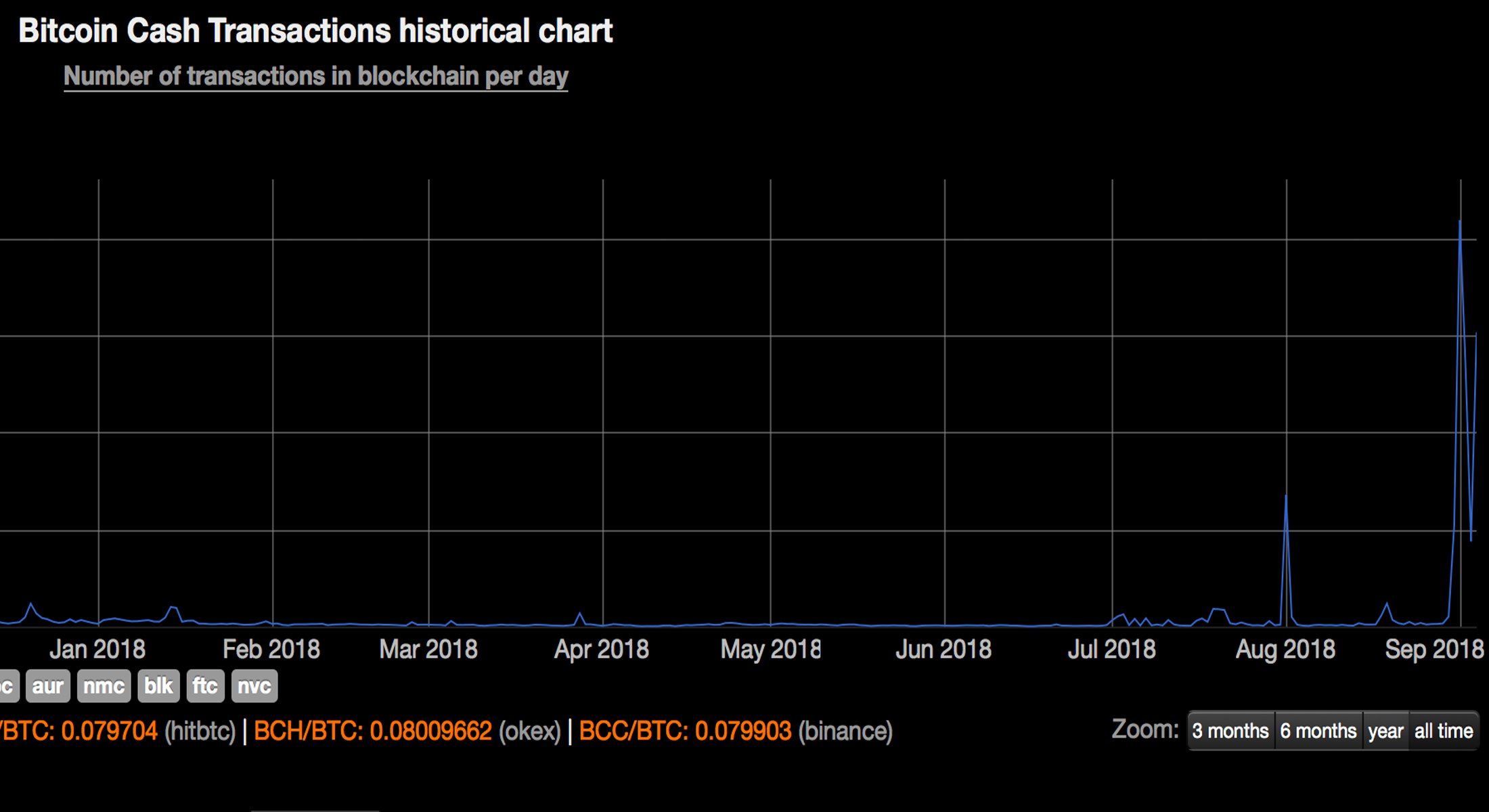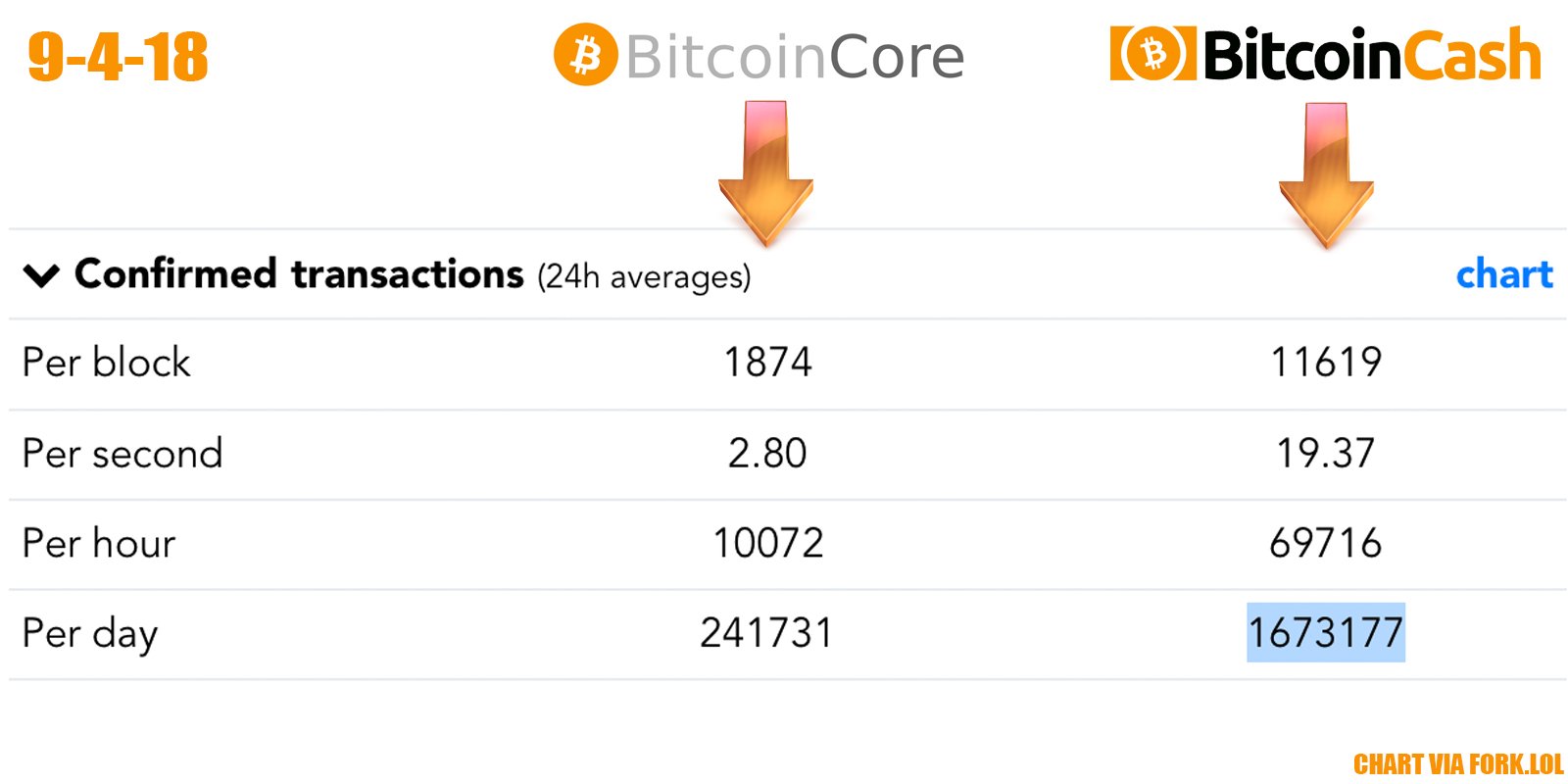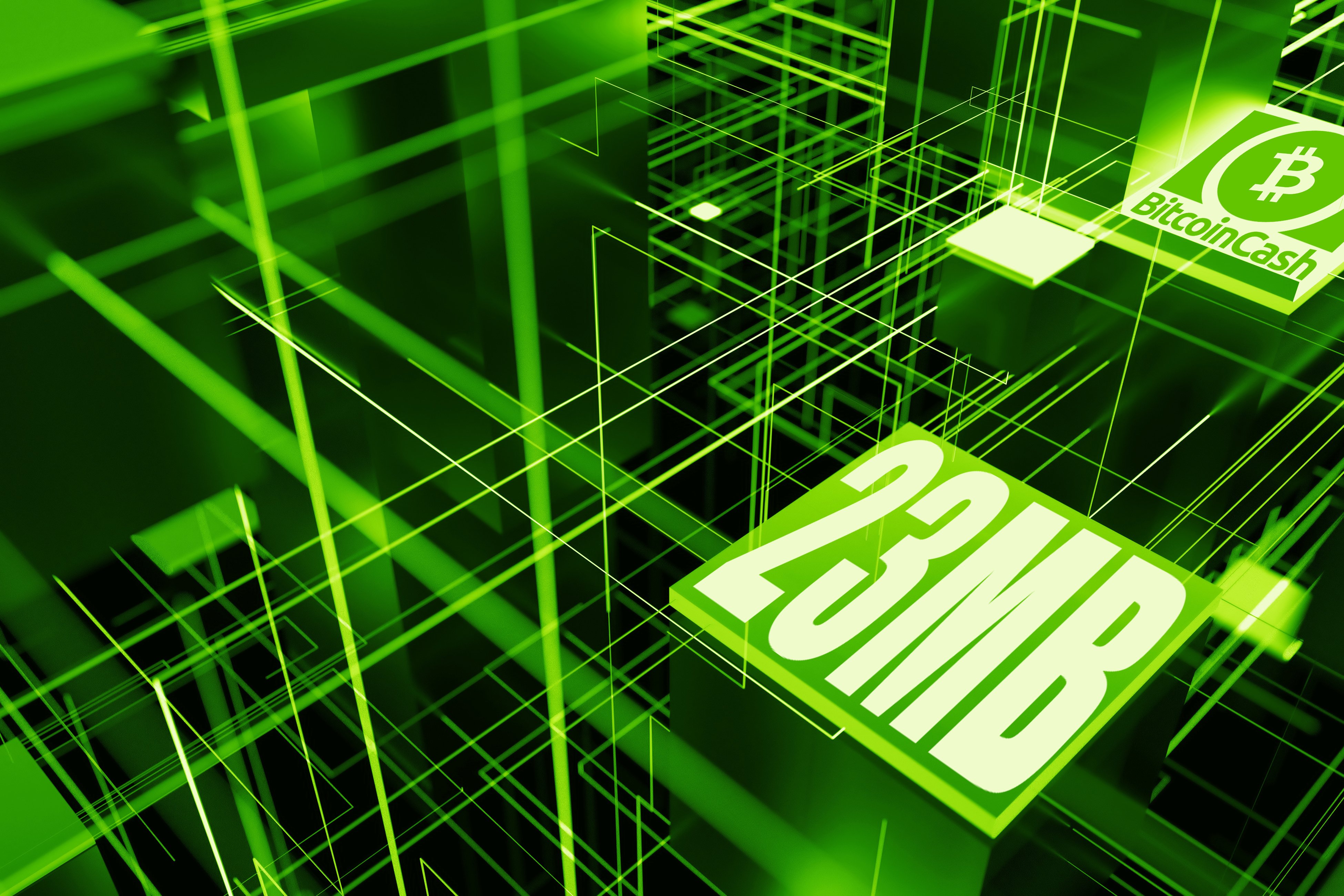On September 1, Bitcoin Cash proponents led a community-driven stress test by sending millions of transactions in one day. In fact, the protocol’s miners processed 2.2 million transactions in 24-hours and processed massive sized blocks all day long. But the stress testing fun didn’t end there as many BCH supporters continued to flood the network with transactions. The next day saw upwards of 1.37M transactions, and September 4 data has shown participants still were going strong with 1.67M processed yesterday.
Also read: 160 Crypto Exchanges Seek to Enter Japanese Market, Regulator Reveals
The BCH Stress Test Went Well Over 24-Hours
The Bitcoin Cash (BCH) blockchain and network participants have celebrated a milestone this September as the peak of the BCH Stress Test Day saw 2.2M transactions processed on the first of the month. Moreover, BCH miners like Coingeek, Waterhole, BMG Pool, Viabtc and others processed many large blocks on September 1st between 4-15MB in size. Alongside this, transactions (tx) processed on the network reached about 23 tx/second for most of the day. However, even though the day was scheduled for only 24-hours, BCH stress test participants continued to send millions of transactions.

The following day on September 2nd the network processed another massive 1.37M, but on the 3rd the network only processed 448,000. Now one would think after the lull things were over for BCH stress testers but they weren’t because, on Tuesday, September 4 the Bitcoin Cash network had touched 1.6 million transactions.

What’s even more interesting is the fact that BCH fees had the lowest median average in months. Back in June, it cost roughly $0.003 (one-third of a US penny) per transaction, which is still low, but during the stress test with millions of transaction, the network fees were about 0.001 per tx.

The 23MB Block
In addition to the lower than usual fees on September 4, block 546423 processed by BMG pool was a whopping 23.15 MB Bitcoin Cash Block that processed a record 97,318 transactions in one fell swoop. Now, this was a unique block indeed and many observers took notice of how this block propagated. The developer Jochen Hoenicke, otherwise known as ‘Johoe,’ detailed that there seemed to be a limit that he had noticed.

“It took 85 minutes to find this block and the mempool was continuously growing at a rate that seems to be close to the limit nodes can accept transactions,” Johoe details on the subreddit r/btc. Another Redditor asks, “Is this a hardware or software problem?”
The Bitcoin miner and developer Jonathan Toomim explains, “Mostly software, but it will affect nodes that have low-GHz CPUs before it affects high-GHz CPUs.” Toomim emphasizes.
The typical variation we see in different machines in single-threaded performance is not that large, maybe 3x, and sometimes the most expensive CPUs are 16-core monstrosities that only get 2.4 GHz per core, which will perform a lot worse than a 2-core 3.8 GHz Core i3.
There’s still a lot of fine tuning that can be done, and these stress tests are giving BCH developers the chance to witness and record data concerning what happens when the network is pushed to certain limits. For a few days, the experimentation took people minds off of the fork debate and this kind of testing gave a glimpse of what the network can do on-chain. Overall BCH proponents enjoyed the stress test and remain confident that Bitcoin Cash can scale.
What do you think about the stress test results? Let us know what you think about this subject in the comment section below.
Images via Shutterstock, Twitter, and Disqus.
At news.Bitcoin.com all comments containing links are automatically held up for moderation in the Disqus system. That means an editor has to take a look at the comment to approve it. This is due to the many, repetitive, spam and scam links people post under our articles. We do not censor any comment content based on politics or personal opinions. So, please be patient. Your comment will be published.
The post Bitcoin Cash Stress Test Goes Beyond 24-Hours Setting New Records appeared first on Bitcoin News.
Powered by WPeMatico

